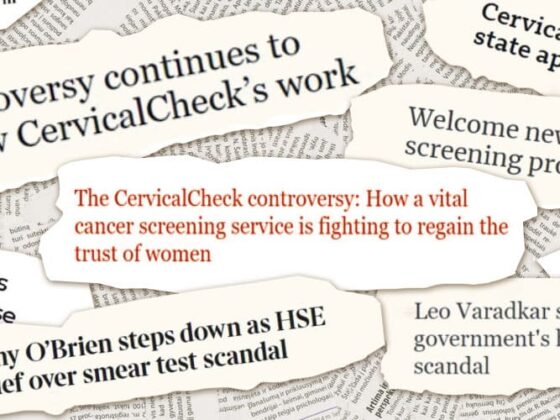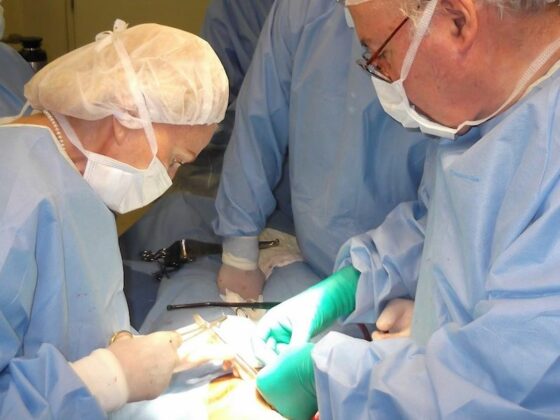Screening women below the age of 50 for colorectal cancer (CRC) can significantly reduce their risk in comparison to those who have no endoscopic screening or who initiate testing at age 50. The study in JAMA Oncology, published online 5 May 2022, found that, compared to no screening, women who started endoscopy screening before age 45 reduced their CRC risk by 63%; starting screening aged 45‒49 years reduced the risk by 57%; starting aged 50‒54 years reduced it by 53%; and starting aged 55 or older by reduced it by 54%.
“Our work provides first-of-its kind data to show that initiating screening at a younger age can reduce an individual’s risk of colorectal cancer and the population’s overall incidence of cancer, thus demonstrating the substantial impact of earlier screening on both individual and population-wide scales,” says Andrew Chan, the senior author from Massachusetts General Hospital, Boston. Although the study was conducted in women, adds Chan, the same benefits are likely to accrue in men, though further studies are needed to confirm this.
Among all cancers, CRC has the third highest incidence of death in both men and women in the US. While the overall number of CRC cases has declined, the population diagnosed with CRC is increasingly younger, with US epidemiological data showing a 51% increase in CRC incidence among individuals younger than 50 between 1974 and 2013. The same pattern holds for Europe, where a 2019 study in Gut involving 20 European countries showed that, between 2005 and 2016, the incidence of CRC increased by 7.9% per year for those aged 20‒29 years, 4.9% per year for those aged 30‒39 years, and 1.6% per year for those aged 40‒49 years.
Screening endoscopy of the lower gastrointestinal tract has the potential to reduce cancer incidence by identifying treatable premalignant conditions (such as adenomatous polyps) and to reduce cancer mortality through diagnosing malignancy at an earlier stage. In the past four years, the American Cancer Society and the US Preventive Services Task Force have recommended lowering the age for screening to 45 years for those at average risk of CRC.
In the current prospective cohort study, Chan and colleagues set out to examine associations between endoscopy initiated at different ages and risk of CRC among 111,801 women enrolled in the Nurses’ Health Study II, who were aged 26 to 46 years at the time of enrolment in 1989, and were followed up every two years between 1991 and 2017.
Results of the multivariable analysis show that, compared with no endoscopy, undergoing endoscopy was associated with a significantly lower risk of incident CRC at all ages, but that the impact was markedly greater when the endoscopy was started at younger ages. For age at initiation <45 years HR=0.37 (95%CI 0.26‒0.53); 45‒49 years HR=0.43 (95%CI 0.29‒0.62); 50‒54 years HR=0.47 (95%CI 0.35‒0.62); and 55 years or older HR=0.46 (95%CI 0.30‒0.69).
Furthermore, the absolute reduction in the estimated cumulative incidence of CRC through to 60 years of age was 72 per 100,000 persons for initiation of endoscopy at 45‒49 years of age versus 50‒54 years.
Compared with no endoscopy, initiation of endoscopy before the age of 50 was also associated with a reduced risk of CRC diagnosed before 55 years of age, with the impact being similar for those starting before 45 years and those starting between 45 and 49 years: HR=0.45 (95%CI 0.29‒0.70) initiation <45 years; HR=0.43 (95%CI 0.24‒0.76) initiation 45‒49 years.
“Our findings support guidelines from the past 4 years that recommend screening for CRC at 45 years of age and provide empirical evidence for patients, physicians, and policy makers to consider when making decisions about CRC screening in a younger population,” conclude the authors.
Benefits associated with earlier initiation of endoscopy, they add, have to be balanced against the risk of adverse events (e.g. perforation and bleeding), more invasive follow-up tests and the potential for overdiagnosis.
The authors express concern that lowering the screening age would be associated with substantially increased costs and also divert resources away from high-risk older populations. This latter point is of particular concern in Europe where the Roadmap for Colorectal Cancer Screening in Europe, published in 2019, showed that only 14% of EU citizens aged between 50 and 74 years have had the opportunity to participate in a formal population-based colorectal cancer screening programme.
In an accompanying editorial, Gregory Calip (Flatiron Health, New York), Neal Meropol (Flatiron Health New York) and David S Weinberg (University of Illinois, Chicago), highlight the fact that women in the study were mostly White healthcare professionals, limiting generalisability and the ability to understand racial and ethnic inequities in the incidence of CRC or screening patterns among adults younger than 50 years. “It is critical to conduct future studies in more representative and inclusive populations so that the results are generalisable to the experience of all individuals at risk for developing colorectal cancer,” they write. Additionally, they add, public health efforts to address CRC in adults younger than 50 years should be targeted at other actionable preventive measures (including chemoprevention, diet change and rates of obesity) as well as tackling complex health inequities in access and utilisation of screening by racial and ethnic minorities.












